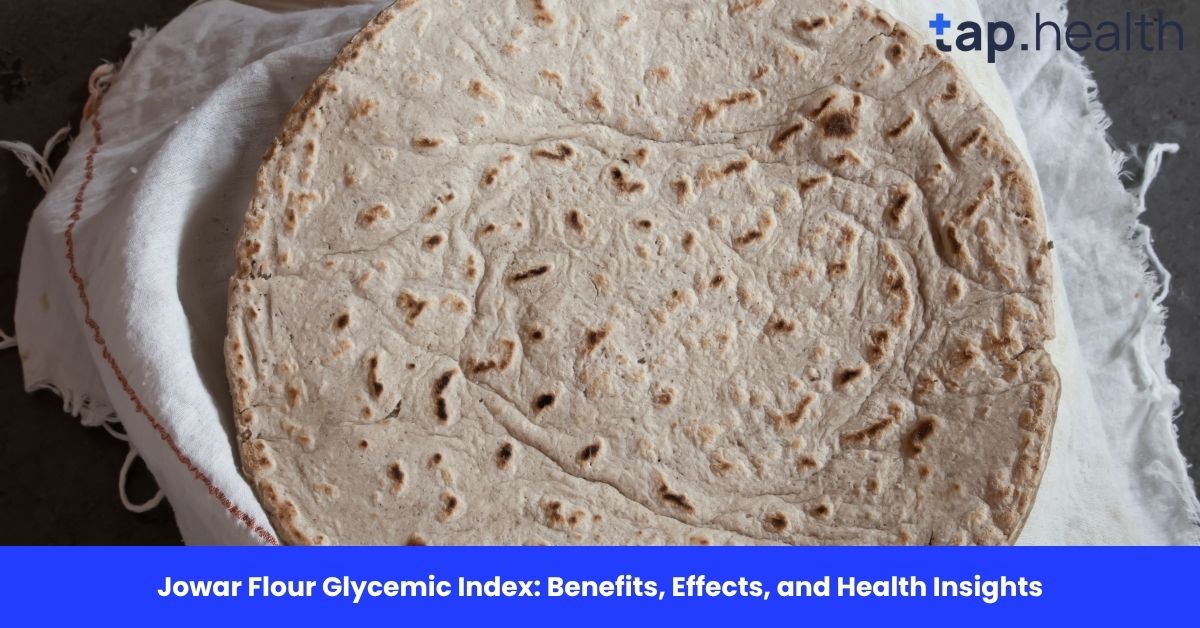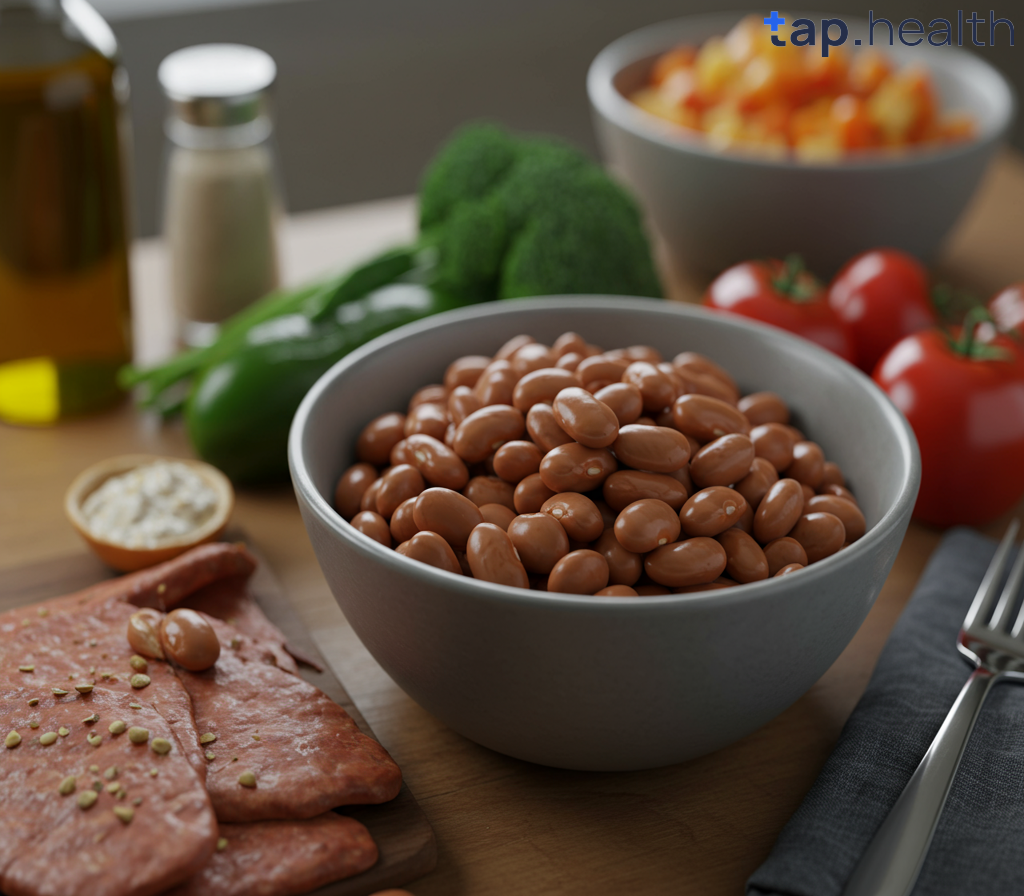Jowar flour, made from sorghum (a gluten-free grain), is rapidly gaining popularity due to its numerous health benefits, especially for those looking to manage their blood sugar levels. One of the key factors to consider when choosing grains for a balanced, healthy diet is the glycemic index (GI). The glycemic index is a measure of how quickly foods raise blood sugar after consumption. Jowar flour is often recommended as a low-GI option, but how does it actually compare to other grains, and why is it beneficial for your health?
In this article, we will dive deep into the glycemic index of jowar flour, explore its health benefits, particularly for diabetics, and provide you with practical tips on how to incorporate it into your daily diet. By the end, you’ll have a complete understanding of how this ancient grain can play a role in maintaining a healthy blood sugar level.
What is Glycemic Index (GI)?
The glycemic index (GI) is a measure that ranks foods on a scale of 0 to 100 based on how quickly they raise blood glucose levels after being consumed. The GI scale is divided into three categories:
- Low GI (0-55): These foods cause a gradual rise in blood sugar levels.
- Medium GI (56-69): Foods that cause a moderate increase in blood sugar.
- High GI (70 and above): Foods that result in a sharp spike in blood glucose.
Low-GI foods are particularly beneficial for individuals who are managing diabetes or those looking to maintain steady energy levels throughout the day. Foods with a lower GI index are digested and absorbed more slowly, preventing spikes and crashes in blood sugar.
Glycemic Index of Jowar Flour
Jowar flour has a glycemic index of approximately 52, which places it in the low-GI category. This makes jowar flour a suitable alternative for those managing their blood sugar levels, as it does not cause rapid spikes in glucose.
Why is Jowar Flour Low GI?
Several factors contribute to the low glycemic index of jowar flour:
- High Fibre Content: Jowar flour is rich in dietary fibre, which slows down the absorption of carbohydrates, resulting in a slower release of glucose into the bloodstream.
- Complex Carbohydrates: The carbohydrates in jowar are primarily complex, meaning they take longer to break down and absorb. This helps in managing blood sugar levels more effectively.
- Minimal Processing: Jowar flour is minimally processed, which helps retain its natural nutrients like bran, which further aids in the gradual release of glucose.
Health Benefits of Jowar Flour
Jowar flour is not only beneficial for blood sugar control, but it also offers several other health advantages. Let’s take a look at some of its key health benefits:
1. Supports Blood Sugar Control
Due to its low glycemic index, jowar flour helps in preventing sudden spikes in blood glucose, which is crucial for individuals with diabetes. The slow digestion of carbohydrates means that jowar flour provides a steady source of energy without causing insulin surges.
2. Rich in Nutrients
Jowar flour is a powerhouse of essential nutrients, making it a valuable addition to your diet. It is a good source of:
- Protein: Essential for muscle growth and repair.
- B Vitamins: Crucial for energy production and metabolic health.
- Minerals: Including iron, magnesium, and phosphorus, which support bone health, muscle function, and oxygen transport.
3. Gluten-Free
Jowar flour is naturally gluten-free, making it a great choice for individuals with celiac disease or those who are gluten-sensitive. It can be used as a substitute for wheat flour in various recipes, providing a healthy alternative for those on gluten-free diets.
4. Promotes Digestive Health
The high fibre content in jowar flour aids in digestion by preventing constipation and promoting a healthy gut. Fibre helps maintain bowel regularity and supports the growth of beneficial gut bacteria, contributing to overall digestive health.
5. Heart-Healthy
Jowar flour is also heart-healthy. It is rich in antioxidants and polyphenols, which help reduce inflammation and oxidative stress—both of which are risk factors for heart disease. The fibre in jowar flour can also help lower cholesterol levels, contributing to improved heart health.
6. Weight Management
Jowar flour is an excellent food choice for weight management due to its high fibre and protein content. Both fibre and protein help you feel fuller for longer, reducing overall calorie intake and aiding in weight control.
Jowar Flour vs Other Flours: Glycemic Index Comparison
To understand how jowar flour stacks up against other commonly used flours, let’s compare the glycemic index of jowar flour with other popular flours:
| Flour Type | Glycemic Index (GI) |
|---|---|
| Jowar Flour | 52 |
| Wheat Flour | 70-85 |
| Rice Flour | 70-90 |
| Almond Flour | 10-15 |
| Oat Flour | 55 |
| Chickpea Flour | 28-35 |
As you can see, jowar flour has a much lower GI than wheat flour and rice flour, making it a superior option for blood sugar control. It also ranks similarly to oat flour, which is considered another good alternative for managing blood sugar levels.
How Jowar Flour Affects Blood Sugar
Since jowar flour has a low glycemic index, it has a minimal impact on blood sugar when consumed. Here’s how jowar flour affects blood sugar:
1. Prevents Sudden Blood Sugar Spikes
The slow digestion and absorption of carbohydrates from jowar flour means that glucose is released gradually into the bloodstream, preventing the sharp spikes often associated with high-GI foods like white rice and white bread.
2. Helps with Insulin Sensitivity
Incorporating low-GI foods like jowar flour into your diet may improve insulin sensitivity. This is crucial for individuals with insulin resistance or those at risk of developing type 2 diabetes. Better insulin sensitivity means that the body can use insulin more effectively, helping to regulate blood sugar levels more efficiently.
Incorporating Jowar Flour into Your Diet
Jowar flour is a versatile ingredient that can be easily incorporated into your daily meals. Here are some practical ways to include jowar flour in your diet:
1. Jowar Flour Roti/Chapati
One of the most common uses for jowar flour is in making roti or chapati. It is a healthy, gluten-free alternative to regular wheat flour. Mix the flour with water, roll out the dough, and cook it on a hot griddle for a nutritious side dish.
2. Jowar Flour Pancakes
Use jowar flour to make pancakes or crepes for breakfast. You can add a variety of healthy toppings, such as fresh fruit, nuts, or a drizzle of honey, to create a balanced meal.
3. Jowar Flour Cookies and Cakes
Substitute jowar flour in your favourite baking recipes to create healthier cookies, muffins, and cakes. It adds a nutty flavour and provides a gluten-free option for baked goods.
4. Jowar Flour Porridge
Cook jowar flour with milk or water to make a creamy, filling porridge. Top it with nuts, seeds, and fresh fruit for a nutrient-dense breakfast.
5. Jowar Flour Pulao
You can also use jowar flour in making pulao by substituting it for rice. Combine it with vegetables, spices, and a protein source like chicken or tofu to create a wholesome meal.
Key Takeaways
- Jowar Flour Glycemic Index: Jowar flour has a glycemic index of 52, making it a low-GI food that is beneficial for blood sugar control.
- Health Benefits: Jowar flour is high in fibre, protein, vitamins, and minerals, supporting digestive health, heart health, weight management, and more.
- Diabetes Management: Due to its low glycemic index, jowar flour is ideal for diabetics or anyone looking to regulate blood sugar levels.
- Versatility in Cooking: Jowar flour can be used in a variety of dishes, including roti, pancakes, cookies, and pulao, making it a versatile addition to any diet.
FAQ on Jowar Flour Glycemic Index
Q1: What is the glycemic index of jowar flour?
Jowar flour has a glycemic index of 52, which places it in the low-GI category, making it ideal for blood sugar control.
Q2: Is jowar flour good for diabetes?
Yes, jowar flour is an excellent choice for people with diabetes. Its low glycemic index helps regulate blood sugar levels and prevents sharp spikes.
Q3: How does jowar flour affect blood sugar levels?
Jowar flour provides a slow and steady release of glucose into the bloodstream, helping to maintain stable blood sugar levels without causing sudden spikes.
Q4: Can I use jowar flour in baking?
Yes, jowar flour can be used in baking to make cookies, cakes, and muffins. It is a great gluten-free alternative to wheat flour.
Q5: Is jowar flour gluten-free?
Yes, jowar flour is naturally gluten-free, making it a safe option for people with celiac disease or gluten sensitivity.
Q6: Can I substitute jowar flour for wheat flour?
Yes, jowar flour can be used as a substitute for wheat flour in many recipes, including roti, pancakes, and baked goods.
Q7: What are the nutritional benefits of jowar flour?
Jowar flour is high in fibre, protein, iron, magnesium, and B vitamins, all of which contribute to digestive health, heart health, and overall vitality.
Q8: How can I include jowar flour in my daily diet?
You can use jowar flour to make roti, pancakes, porridge, or even pulao. It is a versatile ingredient that can be added to a variety of dishes for a nutritious boost.



